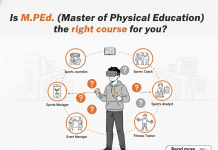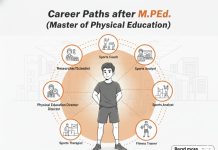How to Improve Communication Skills: Effective communication is a vital skill that influences success in both personal and professional life. Whether in the workplace, academic settings, or social interactions, the ability to express thoughts clearly and confidently helps build strong relationships, resolve conflicts, and foster collaboration. Many people wonder, how to improve communication skills and become more effective communicators. Strong communication extends beyond speaking—it involves active listening, non-verbal cues, written communication, and emotional intelligence. If you have ever asked yourself, how can you improve communication skills or how can we improve communication in different aspects of life, the answer lies in continuous practice and self-awareness. Understanding how to improve comm skills can enhance interactions, boost confidence, and improve overall relationships. This blog explores practical strategies on how can you improve communication and refine your ability to connect with others, whether in professional or personal settings.
Understanding Communication Skills
Communication is not just about speaking; it encompasses a wide range of skills that contribute to meaningful interactions. These skills include verbal communication, non-verbal cues, listening abilities, emotional intelligence, and written communication.
- Verbal Communication: The way we express our thoughts, opinions, and emotions through spoken words. Clarity, tone, and structure are essential to ensuring that the message is well-received.
- Non-Verbal Communication: Body language, gestures, facial expressions, and posture play a significant role in conveying messages and emotions. Sometimes, non-verbal cues speak louder than words.
- Active Listening: Good communication is a two-way process, and listening is as important as speaking. Understanding others’ perspectives and responding thoughtfully improves relationships and problem-solving.
- Written Communication: Writing emails, reports, messages, and articles with clarity and professionalism is essential in academic and workplace environments.
- Emotional Intelligence: The ability to manage one’s emotions and understand others’ feelings is crucial in fostering meaningful conversations and preventing misunderstandings.
By improving these core aspects of communication, individuals can enhance their personal interactions, build professional credibility, and increase their ability to persuade and inspire others.
Tips and Strategies to Improve Communication Skills
- Master the Art of Active Listening
One of the most overlooked aspects of communication is listening. Active listening involves fully focusing on the speaker, understanding their message, and responding appropriately. To be a better listener:
- Maintain eye contact to show attentiveness.
- Avoid interrupting while the other person is speaking.
- Summarize key points to ensure understanding.
- Ask relevant questions to clarify doubts.
- Use non-verbal gestures like nodding to show engagement.
Active listening not only improves comprehension but also strengthens relationships by making others feel valued and understood.
- Improve Verbal Communication
Speaking with clarity and confidence is essential for effective communication. Here are some tips to enhance verbal communication:
- Speak at a Moderate Pace: Talking too fast can make it difficult for others to follow, while speaking too slowly may cause the listener to lose interest.
- Avoid Fillers: Words like “um,” “uh,” and “like” can make speech sound less confident. Practicing structured responses helps minimize these fillers.
- Be Concise and Organized: Before speaking, organize thoughts to avoid rambling. Clearly structured messages help ensure better understanding.
- Adapt to Your Audience: Tailor your language and tone based on the listener’s background, culture, and level of understanding.
- Use Non-Verbal Cues Effectively
Non-verbal communication can significantly impact how a message is received. Facial expressions, posture, gestures, and eye contact all contribute to effective communication. To improve non-verbal communication:
- Maintain appropriate eye contact to convey confidence and engagement.
- Keep an open posture to appear approachable and receptive.
- Use hand gestures naturally to emphasize key points.
- Be aware of cultural differences in body language to avoid misunderstandings.
- Enhance Written Communication
In professional and academic environments, written communication is just as important as verbal skills. To write effectively:
- Keep messages clear, concise, and to the point.
- Use proper grammar, punctuation, and spelling.
- Tailor the tone to the audience (formal for professional emails, conversational for informal communication).
- Proofread messages before sending to avoid errors.
Clear and structured writing improves professionalism and prevents miscommunication.
- Build Confidence in Public Speaking
Public speaking can be daunting, but with practice, it becomes easier. To develop strong public speaking skills:
- Practice in Front of a Mirror: This helps improve posture, facial expressions, and overall confidence.
- Record Yourself: Listening to recordings can highlight areas for improvement in tone, clarity, and speech structure.
- Join Public Speaking Groups: Organizations like Toastmasters provide a supportive environment to refine speaking skills.
- Use Storytelling Techniques: Engaging narratives help capture the audience’s attention.
- Manage Nervousness: Deep breathing exercises and positive visualization can reduce anxiety before speaking.
- Develop Emotional Intelligence
Emotional intelligence plays a key role in communication. It helps individuals express themselves effectively, understand others’ perspectives, and handle conflicts diplomatically. To improve emotional intelligence:
- Practice self-awareness and recognize personal triggers.
- Show empathy by considering others’ emotions and viewpoints.
- Manage stress and remain calm in difficult conversations.
- Use positive and constructive language when providing feedback.
- Learn to Give and Receive Feedback
Providing and accepting feedback is an essential communication skill, especially in professional settings. To give effective feedback:
- Focus on specific areas for improvement rather than vague statements.
- Use a constructive tone to encourage growth rather than criticism.
- Offer solutions along with feedback to guide improvement.
When receiving feedback, maintain an open mindset and avoid defensive reactions. Constructive criticism is an opportunity for growth.
- Expand Vocabulary and Language Skills
A rich vocabulary allows individuals to express their ideas more precisely. To enhance vocabulary:
- Read books, articles, and newspapers regularly.
- Learn new words and understand their correct usage.
- Practice writing and speaking exercises to integrate new vocabulary.
Developing strong language skills improves both verbal and written communication.
- Adapt to Different Communication Styles
Every person has a unique communication style, and adapting to different personalities ensures effective interactions. Being flexible with communication approaches helps in professional teamwork, leadership roles, and personal relationships.
- Stay Open to Continuous Learning
Communication is an evolving skill that improves with time and practice. Seeking mentorship, enrolling in communication courses, and regularly engaging in conversations with diverse groups of people can further enhance communication abilities.
Conclusion
Improving communication skills is a lifelong process that requires consistent effort and practice. By mastering active listening, refining verbal and non-verbal communication, strengthening written communication, and enhancing public speaking abilities, individuals can significantly boost their confidence and effectiveness in interactions. Emotional intelligence, adaptability, and openness to feedback also contribute to better communication. Whether in personal relationships, academic pursuits, or professional careers, strong communication skills are invaluable in fostering understanding, collaboration, and success. By implementing these strategies, individuals can become more persuasive, articulate, and impactful communicators, leading to greater opportunities in both their personal and professional lives.




![Is B.Sc. Information Technology [Lateral Entry] the Right Course for You? Is B.Sc. Information Technology [Lateral Entry] the Right Course for You?](https://www.lpu.in/blog/wp-content/uploads/2026/01/Is-B.Sc_.-Information-Technology-Lateral-Entry-the-Right-Course-for-You-218x150.png)









